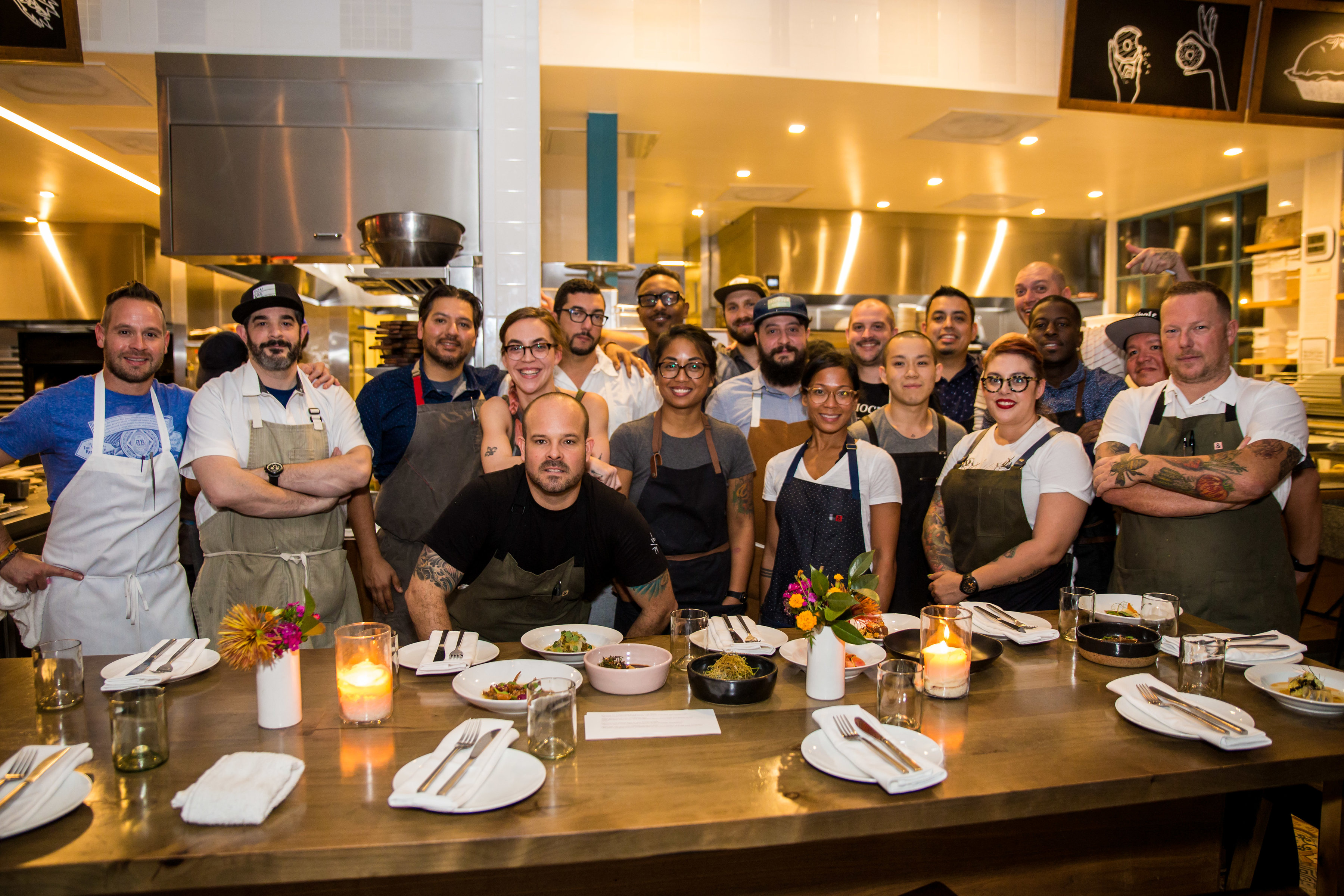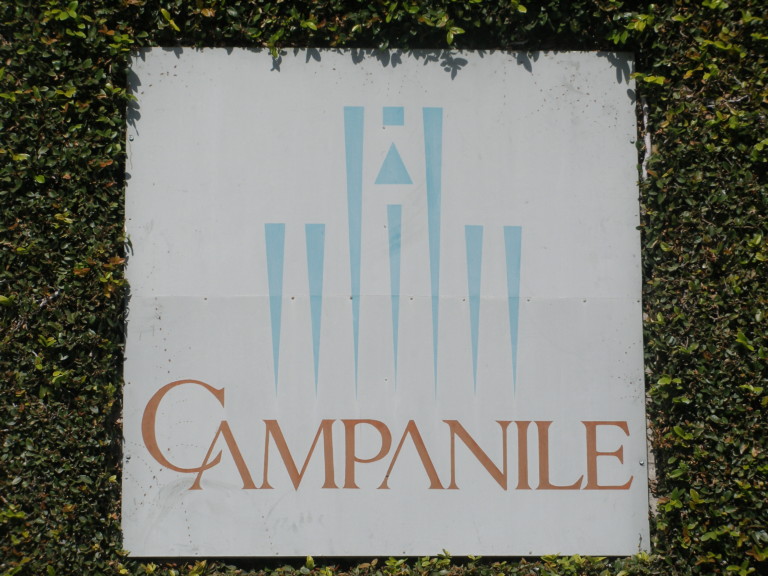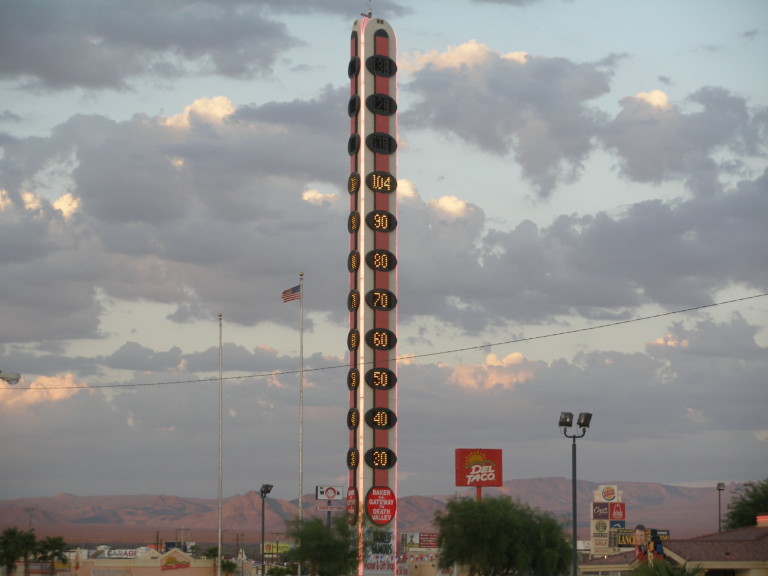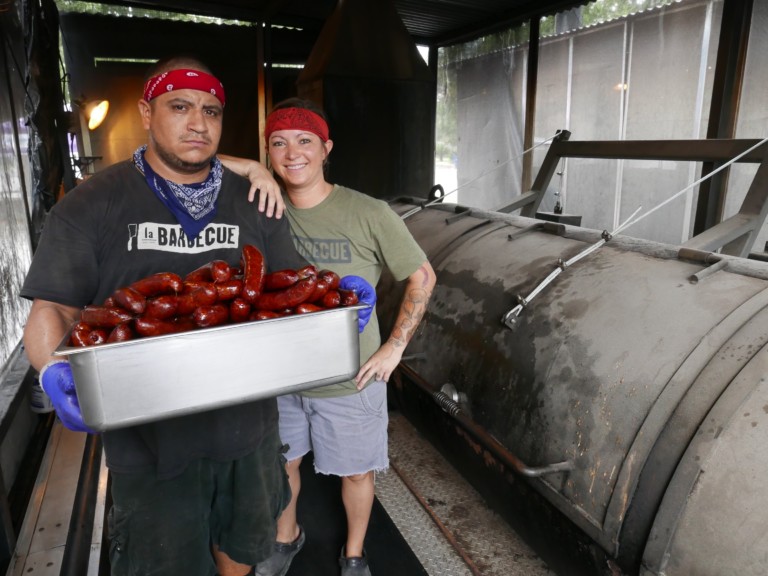Indie Chefs Week recently convened in Los Angeles, showcasing the collective talents of 21 leading American chefs during the course of three dinners. Chef Ned Elliott and restaurateur Grover Smith co-founded the event in 2013 as a way for chefs to meet, collaboration, and exchange ideas related to both food and business. Indie Chefs Week previously gathered chefs in Austin, Costa Mesa, and New York City, with Houston forthcoming, and united at The Rose-Café Restaurant in Venice from November 5-7. After experiencing the 21-chef grand finale, I wondered how participants define independence and asked nine chefs, “How do you define independence as a chef? Are the constraints financial, creative, or do you use some other criteria?” Read their thoughtful responses.
Jillian Bartolome (Aquî)
I think that independence as a chef is having agency and ability to express your vision freely. However, no man is an island, and no chef works alone; there is always someone to answer to in some capacity, whether they are investors, business partners, guests, or employees. I think it’s a matter of aligning yourself with people who can work with you to achieve the same desired outcome. That doesn’t necessarily mean only working with people who work and think the same way; it means finding compatible work ethics, ideas, and personalities that strengthen your ability to express your vision rather than compromise it.
Brett Cooper (Aster)
For me independence as a chef manifests in many ways. It is gaining the trust of our guests so that we can create very personal and unique food. It’s also maintaining an environment where our entire team can thrive and contribute their own creativity and ideas. Independent thinking trickles down and creates a sense of ownership that compliments a team structure. There are always constraints because in the end we are doing this for the guest experience and that always has to be at the forefront, or we’ll all be out of jobs. We try to be creative and work around constraints. For instance, using technique as opposed to luxury ingredients so that we can keep our menu price down and try to exceed expectations with the “wow” factor.
Gabe Erales (Dai Due Taqueria)
I see independence as a chef as defined by his/her own personal developed cooking philosophy which may be constrained by a type of cuisine or style. As an example, for me it’s Mexican food, but I have dedicated my menu and sourcing to what’s available locally so I am limited in what would be used in a typical Mexican preparation. Pineapples for a taco al pastor or something similar do not grow in Texas so I have to look to find a replacement that makes sense, but still has similar flavor profiles. In this case I would use something like lacto-fermented pears or apples.
Michael Fiorelli (Love & Salt)
It’s all about cooking what makes you proud. What makes you happy. And are you able to pull that off financially while balancing a comfortable life. And of course, who do you have to answer to, to achieve all of that?
Edouardo Jordan (Salare Restaurant + Junebaby)
Being able to make final decision as an independent owner is so fulfilling. I check off to no one (technically), but I have great respect for the people that invested in me and believed in me. Independence is being able to create the food and business you desired without any obstacles in your path. You are able to freely express yourself without parameters.
Eric Samaniego (Michael’s on Naples)
I feel most free as a chef when I can just let my mind wonder. I have never been able to establish a style of cooking that can be defined by one regional cuisine or another. When I am free to create a dish that is reflective my imagination, my memories and my creativity I feel that I working at my full potential. Being able to create a dish that needs no definition or explanation. Right now I am working at a restaurant that has almost 10 years of history. I have a number of regulars that continue to eat the same great dishes that they have since they started eating here. I am restricted in offering the full range of my dishes in order to keep our regulars happy.
Craig Thornton (Wolvesmouth + Sharksteeth)
Independence as a chef for me is being able to create the dish or experience I envision without every single aspect being driven by financial gain. This in turn does make it more difficult at times, but it also fuels creativity and morale. Money is easier to come by than freedom and creativity. At the end of the day I’m not sitting in a room listening to someone explain to me why, “We need a burger.” It’s just not a point I’m at in my career and may never be at that point as it does not excite me. If I were trying to make crazy money I’d become a day trader or something. The last place I’d be is in a kitchen. Running a restaurant is like building a highly volatile machine that is impossible to mechanize and expecting it to run as if it’s a factory floor churning out perfect gems. For me I enjoy tinkering with the machine like so many before me and the many who feel the need to now as well.
Jon Yao (Kato Restaurant)
To me, independence means being able to express your vision exactly how you want without compromise and having access to technique and resources to do so. It also means having an audience base willing to take on your point of view and receive what you are trying to convey.
Claudette Zepeda-Wilkins (El Jardin)
For me, independence is largely defined through creativity. I found that if you have superiors that micro-manage it can be incredibly hard to create and move forward. You at that point are only constantly answering to them rather than creating, discovering, and being innovative.









Leave a Comment